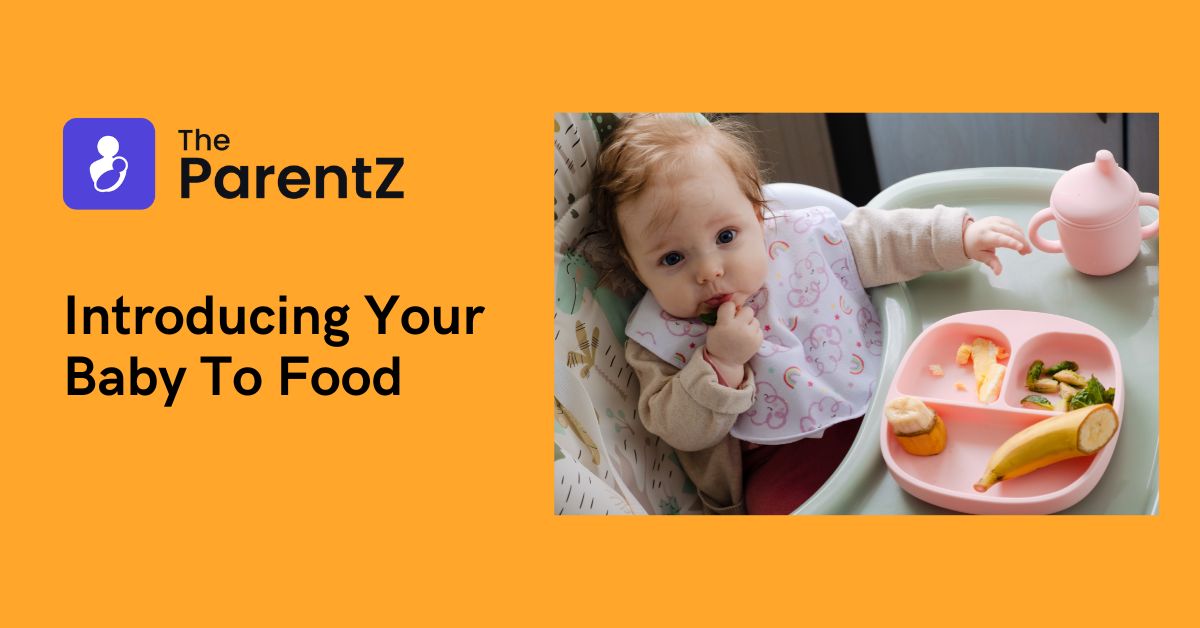At what age to introduce your baby to food?
Exclusive breastfeeding is recommended for 6 months of age. Additional food besides breast milk should be introduced to an infant around 6 months of age. At this age, breast milk alone is not sufficient to meet the nutritional requirements of a child. A child requires additional nutrients such as iron and zinc which cannot be provided in adequate amounts by breast milk alone. Generally, when an infant doubles the birth weight is an appropriate time to start an introduction to solid food.
How do I know my baby is ready?
Giving your child food does not only depend on the age and nutritional needs of the baby but also on specific development milestones. You should expect a certain level of development and control in the child before introducing solid foods. These include-
- The child is able to sit up either alone or with proper support. This ensures that the child will be able to sit upright while feeding and reduce the risk of food going down the wrong pipe.
- The child is able to control their head and neck. The neck should not be rolling to the sides when a child sits up.
- The child opens the mouth when food is offered and opens mouth when looking at other people eating.
- The child is able to swallow food and does not push it back out onto the chin. This means that the child is accepting food.
- The child brings objects to the mouth and chews on them.
- The child tries to grasp small objects, such as toys or food. This shows that the grasp of the child has developed and they can hold a food item, spoon or fork while eating.
- The child is able to transfer food from the front of the mouth to the back of the tongue and swallow.
How and what to feed your baby?
An infant should be gradually introduced to various food groups after 6 months of age. The WHO does not recommend introducing foods in a specific order. However there are a few things to be kept in mind when introducing your child to solid foods. These are
- Give foods which have been pureed or mashed into a semi solid form. Your child is not used to having anything thicker than breastmilk or formula. Try to puree the food to a similar consistency and gradually shift to a more solid consistency.
- If your child refuses to eat, do not force feed. Continue breastfeeding and try solid feed once again after a few days.
- Introduce a single food from a food group at a time. You should go 3-5 days between introducing different foods. This is helpful in identifying and avoiding foods that may be allergic to the child.
- You should make food which is rich in calories and essential nutrients. Take care that the food is filling and nutritious as well.
- If you give a pre-made mix of cereals or baby food, ensure that it is fortified with essential nutrients such as iron.
- Feed your baby soft food which is easily dissolved with saliva to prevent a choking hazard.
- Give small portions and encourage the baby to eat slowly to prevent choking. Cut solid food into fine small pieces which cannot get stuck in the airway pipe.
Does your baby need water?
Generally babies do not need extra water. A baby can get enough water from the breast milk or formula, whichever is used as a primary feed. You can start to offer a little water to the baby after an introduction to solid foods. Even then, a large quantity of water is not required and 1 cup each day is enough. You can offer small amounts of water between feeds after 6 months with a small spoon or sippy cough. Babies may need a small amount of extra water if the place of residence has very hot weather.





Be the first one to comment on this story.